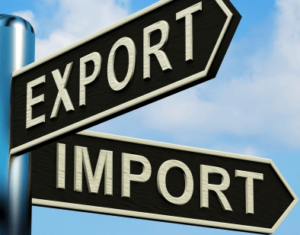Ratification of AfCFTA expected to increase exports volume by $35b annually
 The African Continental Free Trade Area (AfCFTA), if implemented is expected to change the fortunes of the continent by increasing the volume of exports by $35 billion per year, representing 52 per cent of exports, and reducing imports by $10 billion, according to the Network of Economic Journalists for West Africa.
The African Continental Free Trade Area (AfCFTA), if implemented is expected to change the fortunes of the continent by increasing the volume of exports by $35 billion per year, representing 52 per cent of exports, and reducing imports by $10 billion, according to the Network of Economic Journalists for West Africa.
In a press release copied to ghanabusinessnews.com, the Network said, the implementation of the Agreement is laudable, and will increase the quantity of trade in goods by 16 per cent, and also make 90 per cent of trade in goods free of customs duties.
AfCFTA, is a flagship project carved out of the Sustainable Development Goals (SDGs) scheduled for 2022 and mainly included in Agenda 2063 of the African Union.
The Heads of the Member States of the African Union (AU) Commission initiated the creation of the world’s largest free trade area in Kigali, Rwanda on March 21, 2018.
The release said, a year after its signing, the 22 ratifications required for its implementation were completed when The Gambia ratified the Agreement on April 4, 2019.
The Network which has welcomed the commitment and expressed gratitude to the Heads of State and Government of Africa, is keen on the successful implementation of the AfCFTA since it believes it will also boost the agricultural and industrial exports sector because it is expected to increase from $4 billion to $21 billion.
“This development has the potential to create employment and wealth on the African continent. With average tariffs at 6.1%, companies currently face higher tariffs when exporting goods within Africa, while they pay lower tariffs when they export goods outside the continent,” the release noted.
The Network is also optimistic about the enormous advantages and potentials, which comes with this Agreement, such as significantly increasing intra-African trade, and also stimulating and encouraging investment, innovation, and the structural transformation of African economies in order to improve food security, economic growth, exports diversification and the rationalization of the trade regimes of the economic communities.
The Network of Economic Journalists for West Africa was initiated and formed under the leadership of the Sub-Regional Office for West Africa of the United Nations Economic Commission for Africa.
Its membership is made up of journalists from all the 15 member countries of the Economic Community of West African States (ECOWAS), the release added.
By Asabea Akonor
